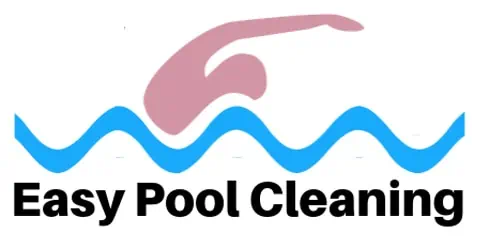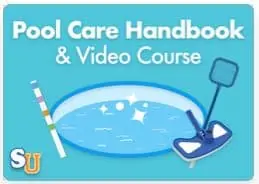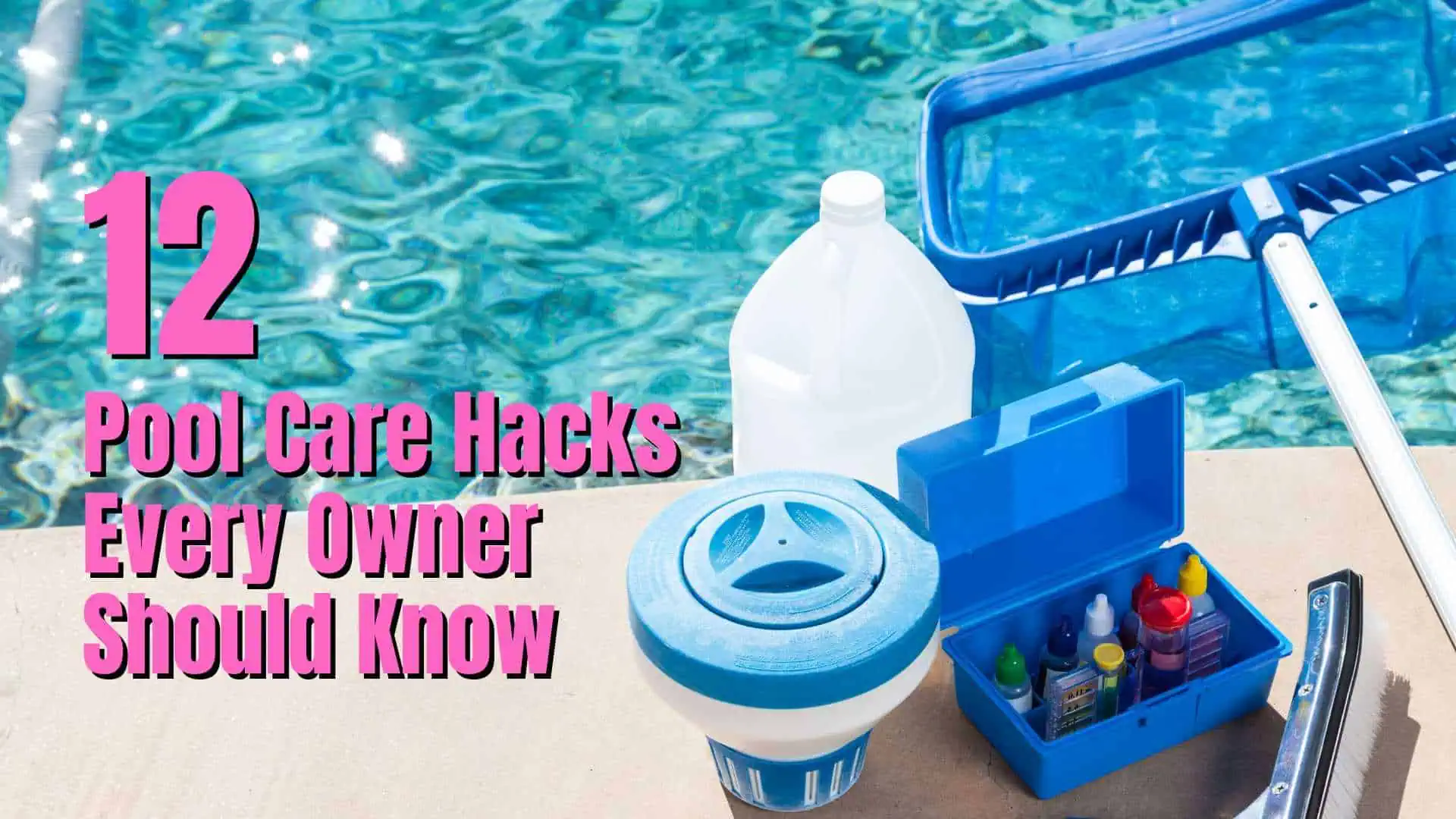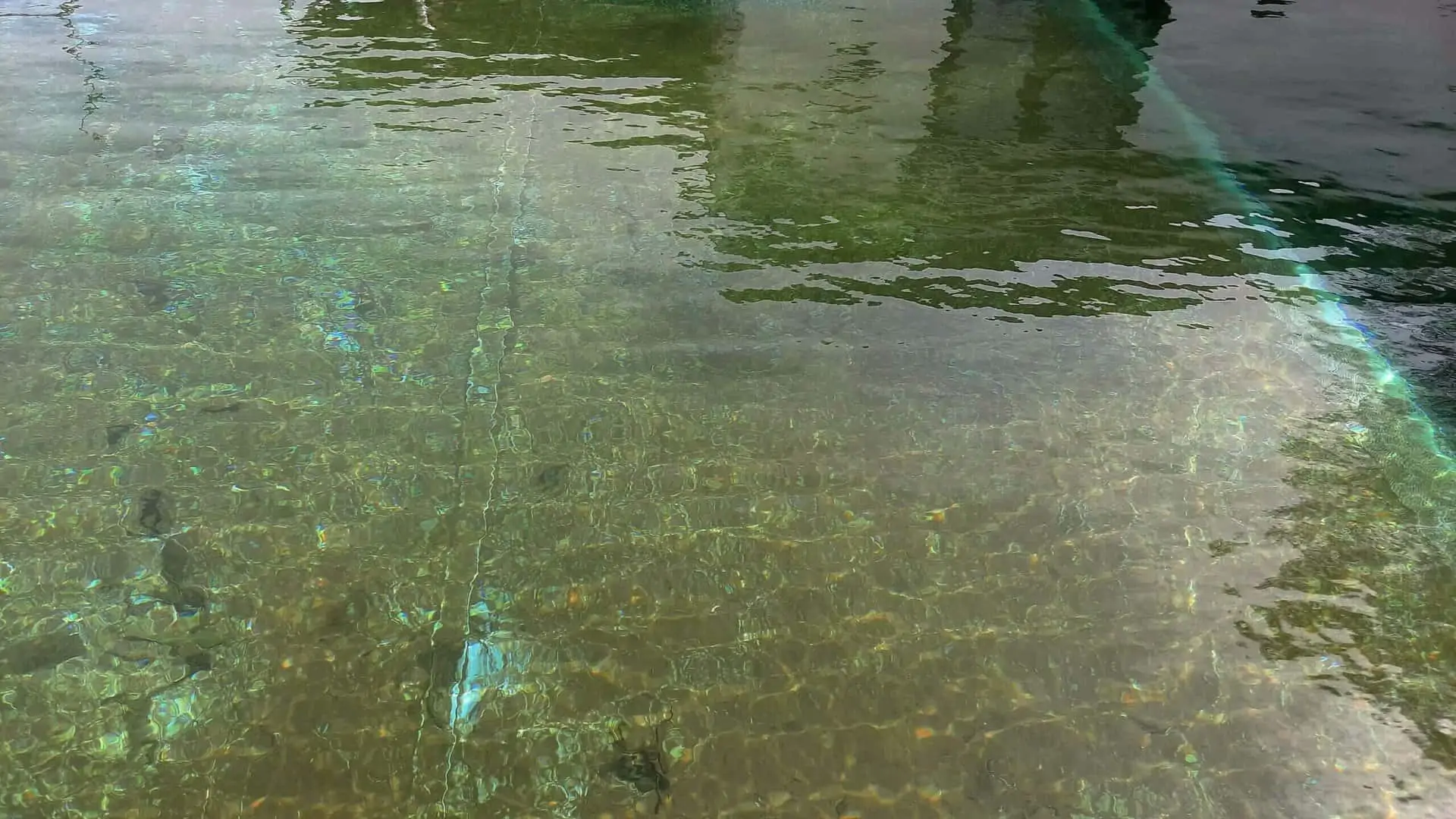If you have a pool, you probably wonder about the best practices for maintaining the right chemical balance in the water, especially when it rains. You might ask yourself questions about what chemicals to add after the rain stops; when you should clean the pool after rain; and whether or not you should run the pool pump when it rains.
Whether you run your pool pump when it rains or not, you will need to take several steps to ensure the pool water is at the correct chemical and cleanliness level.
Keep reading to learn more about what happens when you run the pool pump during the rain and what you should do after a storm.
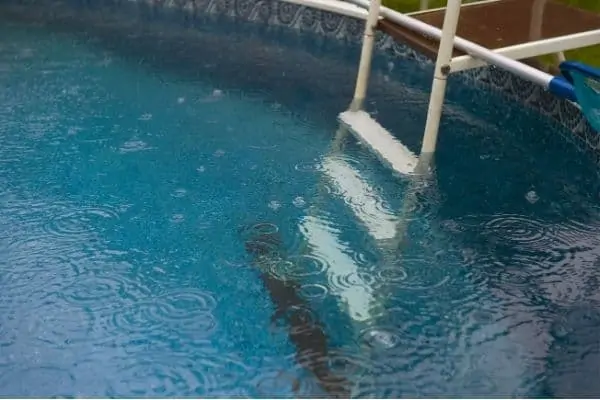
The Quick Answer: Should I run my pool pump when it rains? As a general rule, you should run your pool pump when it rains. Rain can change the chemical makeup of the water, such as the pH and alkalinity, in addition to adding dirt and debris. So to keep your pool in the best condition, you can run the pump while it is raining.
Running a pool pump when it rains
Running your pool pump while it is raining will not damage any of the electrical components and is not bad for the pump or your pool. By running the pump during the rain, you will be mixing the water in the pool further and cleaning the pool by pushing the debris through the skimming basket, trapping debris, and then the filter, trapping dust and smaller dirt.
By running the pump during rain, you may be able to get ahead on the post-rain cleanup, but you will still need to do a thorough cleaning after the rain, if it is particularly heavy.
Let’s face it, many times your house will be unoccupied when it rains, when you are at work or if you are out. So the pool pump is likely to be running while it is raining anyway.
What happens if you don’t run the pump in the rain?
Running the pool pump while it is raining is not completely necessary. While doing this does help to keep the pool clean during the rain, you may still need to take steps once the rain stops to clean further. You will need to take these steps whether you run the pump during the rain or not.
Since you will need to run the pump either way after the storm ends, you might consider not running the pump during the rain to save some energy.
Many people don’t change their pool pump schedule since it usually runs automatically. This will mean that the pump may or may not be on during the rain.
After all, if you are out at work when it starts to rain, and the pool pump is set to be off then, will you leave work to go home and switch it on? I think not. Mind you, in these days of “smart” equipment perhaps you could switch the pump on and off using your cellphone.
What rain does to a pool
You may be wondering why rain getting into your swimming pool is such a big deal. After all, it’s just water being added to more water, right? How could rainwater really be that different from the water that is already in the pool?
Although this may sound simple in theory, in reality, the water in a swimming pool has gone through processes and maintenance to find that delicate balance of chemicals and remove debris and contaminants, so that your swimming pool can remain crystal clear and clean.
Rainwater is notorious for containing contaminants. Bacteria, dirt, acid, and other things can be hitching a ride into your pool each time it rains. They drip in with the innocent-seeming raindrops and begin to spread and contaminate the pool water.
Rainwater can affect your pool in the following ways:
- Sanitary state/Chlorine balance
- pH balance
- Alkalinity
- Calcium hardiness
- Water level
- Cleanliness
These elements are all important to maintaining the correct state of your pool water for safe and enjoyable swimming. They also help to better its appearance and the longevity of the swimming pool’s life.
What to do after it rains
Once the rain stops, it will be time for you to clean the pool and do maintenance on the water properly. Be sure to follow these steps after any major rain event that either raises the water level in your pool significantly or causes a lot of dirt and debris to fall into the pool.
See the section below on how to determine if you need to follow these steps following a storm.
Lower the pool level
The first step in post-rain pool maintenance is to get the pool back to a normal water level. If the rain has dumped a lot of water in the pool, it will be important to drain some of the water so that the level is correct again.
You might think that this step is unnecessary. After all, once you go a few sunny weeks with no rain, you will need to put water back in, so why drain it now? This draining step is necessary to ensure that the filters, pumps, and other mechanisms in the pool work properly. The jet pumps and skimmer will not be able to correctly mix and clean the water if there is too much of it in the pool.
Here you will find my tips for how to drain water from a pool.
Empty the skimmer basket
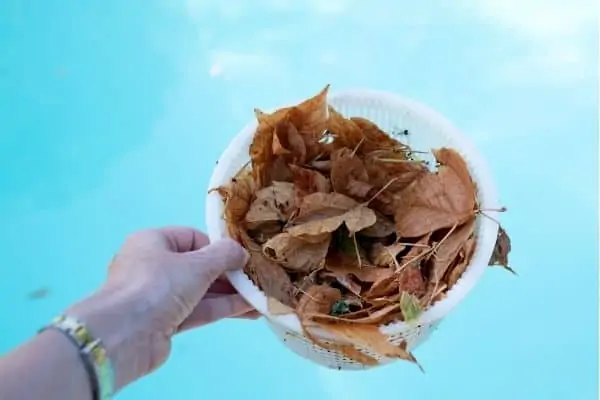
Once your pool is back to a normal level, you can work on cleaning it. First, be sure to empty the skimmer basket of everything that was collected while it was raining so that you can start with a clean basket.
Once the clean skimmer basket is replaced, you can turn on the pump to start moving the water around. This will not only start sending some of the dirt and debris to the skimmer basket, but it will also mix the rainwater thoroughly with the other pool water.
This step is crucial to know how to adjust the chemical makeup of the water to maximize cleanliness.
Replenish chlorine by “shocking” the pool
It is never a bad idea to shock your pool after it rains heavily (it isn’t usually necessary after light rain).
Shocking involves adding chlorine to the pool to kill any bacteria. This step is needed after it rains since the chlorine will probably have been diluted by the rainwater. Shock your pool as you normally do during regular maintenance.
Remember that you shouldn’t swim in a pool after it has been shocked perhaps for about 24 hours due to the high concentration of chlorine and other chemicals. Since the pool pump is on from the previous step, the pool water should be fully mixed, and the chlorine has done its job to clean the pool in about a day.
Clean dirt and debris
While the chlorine is doing its job of cleaning the pool, you can start to clean out the excess dirt and debris. You can use a manual skimmer to collect large leaves or anything else floating in the pool. This will help prevent the skimmer basket from getting full quickly and help speed up the cleaning process.
Next, you can use your manual or automatic vacuum if you have one to clean the bottom and sides of the pool. Once you are done, you will have a dirt and debris-free pool with one final step needed before you can use it.
Test water and adjust chemicals
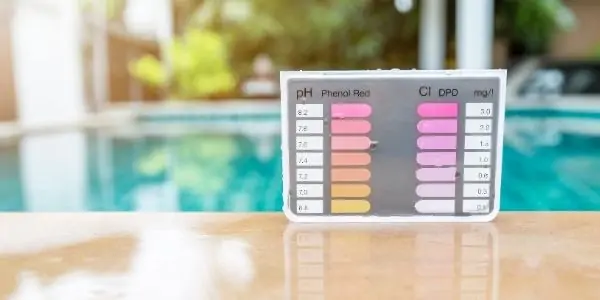
Once the pool is cleaned, you are almost ready to swim in it again. To make sure the water is safe, test it to determine which chemicals need adjusting.
You can take some sample water to your local pool shop or test it at home. From there, you will know which chemicals to add to make sure the water is clean and safe for swimming.
Rain can be slightly acidic so the pH levels will probably need to be adjusted.
How much rain is enough to need the above?
In general, you won’t need to worry about any of this if the rain is light and not heavy. There are a few ways to determine whether or not you will need to go through this process following a rain event:
- if there is a lot of visible dirt and debris in your pool
- if the water level has risen significantly
One of the easiest ways to tell if you need to go through this cleaning process is to see if there are many leaves and other debris floating in the pool. This indicates that it rained hard enough to bring in these leaves and such from nearby trees. The presence of this will let you know that you will at least need to skim the pool and empty the skimming basket.
Another way to tell if you need to perform this process is if the pool’s water level has risen significantly. Raised water levels, even if there is no debris in the pool, indicate that it rained a lot and usually means that the levels of chlorine and other chemicals in the water are imbalanced.
Pool Care Handbook and Video Course
When I bought my house with a swimming pool, I knew absolutely nothing about pool care. I just winged it for a while, making many mistakes along the way.
Fortunately, I was recommended Swim University’s Pool Care Handbook and Video Course. I bought it and it was an absolute game-changer.
It was the best money I spent that year. I learned everything from basic cleaning to advanced troubleshooting. Swim University offers a no-quibble refund policy too so what do you have to lose?
Wrapping things up
At the end of the day, it doesn’t make a huge difference if you run your pool pump during the rain or not. You will not damage the pool or equipment by running the pump during the rain and likewise, not running the pump won’t do any harm either.
However, your pump and filtering system will possibly not be able to keep up with the dirt and debris that falls in the pool during heavy rain. Because of this, you will need to properly clean your pool following any major rain event to make sure the pool is clean and safe to swim in.
Read my other pool pump articles:
How long you should run your pool pump for each day
How long to run the pool pump after shocking
How to keep a pool clean without a pump
Also you may wonder whether the pool pump should be running when you swim so this article will answer that – Do you run the pool pump while swimming?
FAQs
Should I shock my pool before or after it rains?
The best time to shock your pool is after rain rather than before. This allows you to test the pool water and make any adjustments necessary to the alkalinity etc before shocking.
Is rainwater bad for a pool?
Rainwater is generally acidic so it can lower the pH in the pool, meaning you will have to adjust it afterward. If your pool is only receiving additional water directly from the rain it isn’t such an issue but if your garden gets flooded and rainwater enters the pool from there it may cause more major issues.
Why does the pool turn green after it rains?
This does not always happen of course but it can happen. The reason is that the rainwater can alter the chemistry in the pool to such a degree that it promotes algae growth, particularly when the sun comes out after the rain stops.
Can a pool pump get wet?
Pool pumps are made to be outside so that they still function when they get wet, particularly when it rains. If the area the pump sits on gets flooded it may affect the pump. Your pool equipment will last longer if under cover though.
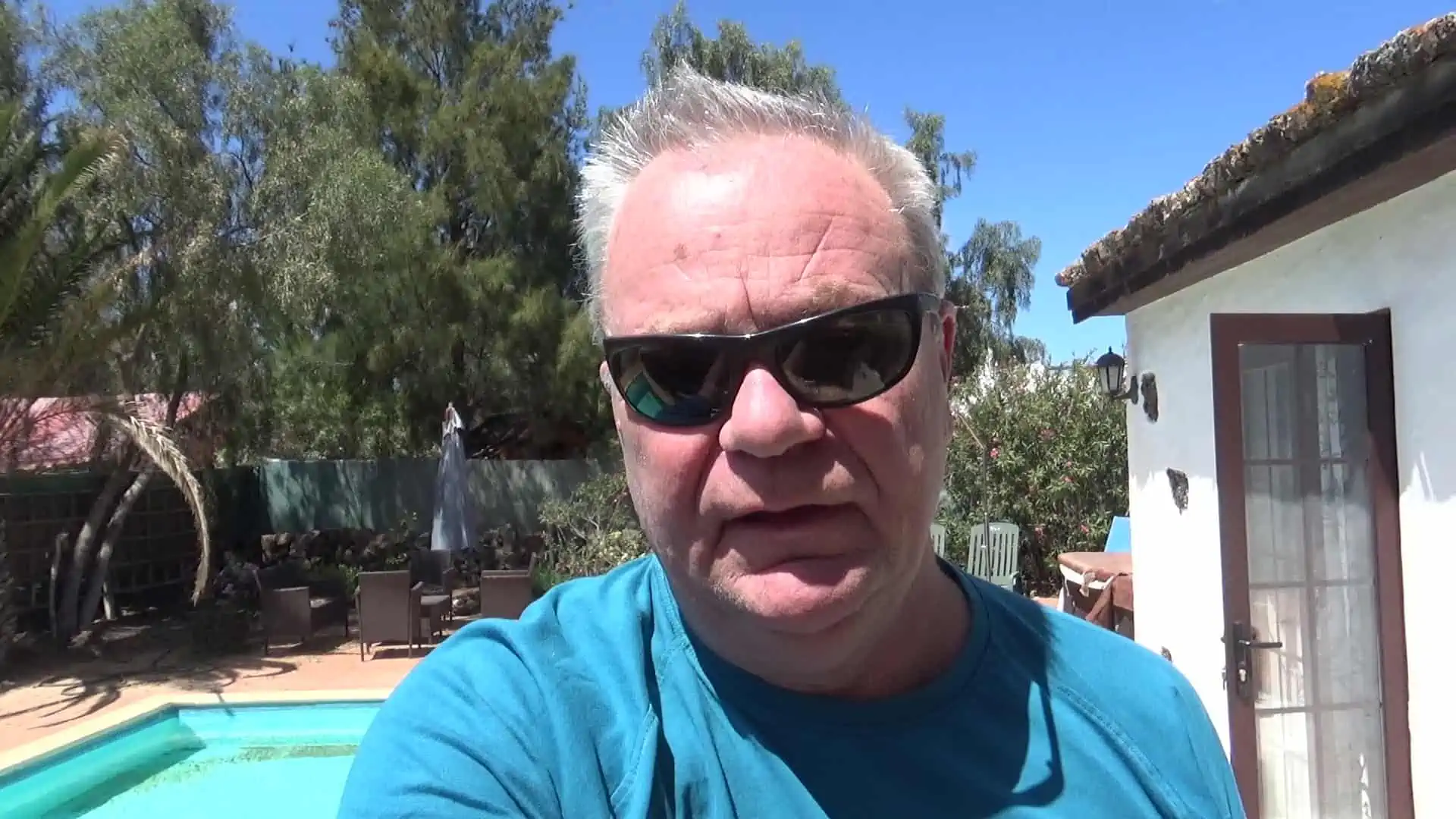
I have had hot tubs for over 20 years and a pool for the last 10 years. I had to learn how to clean, maintain and fix them the hard way. Since then I have helped many friends and neighbors with their pools and now I want to share everything I have learned with you. About Me
